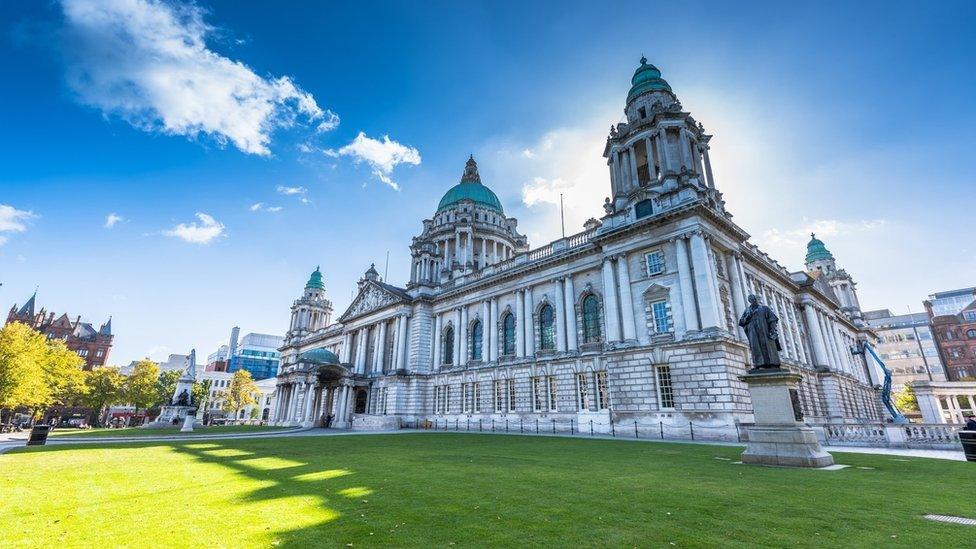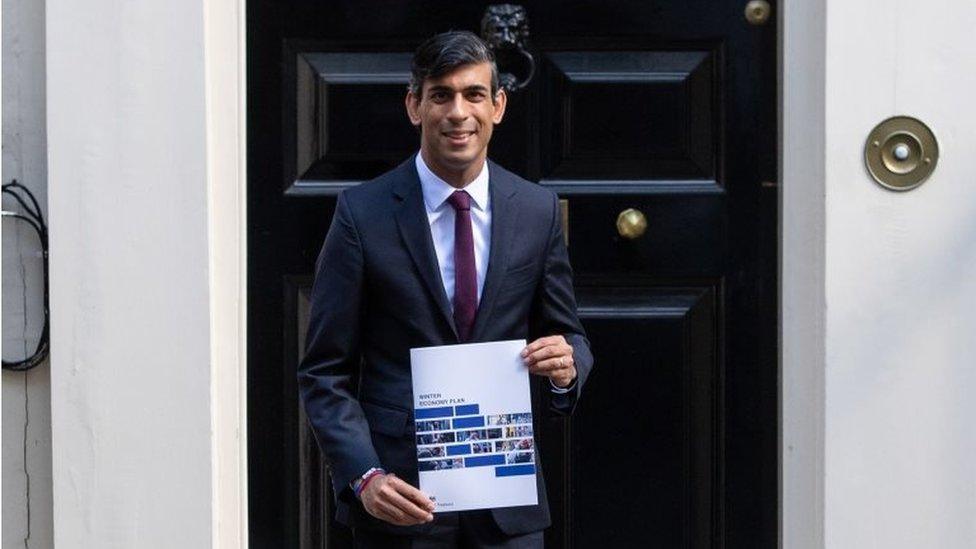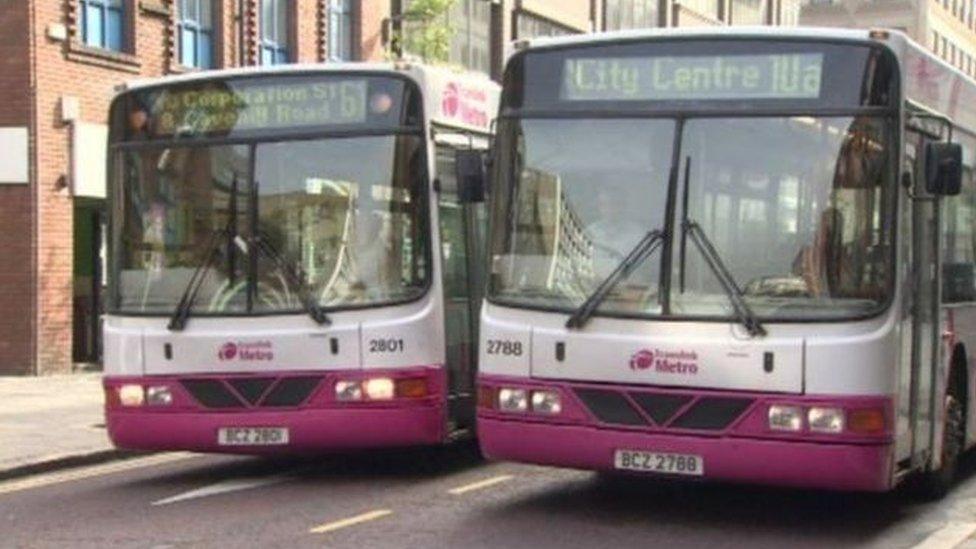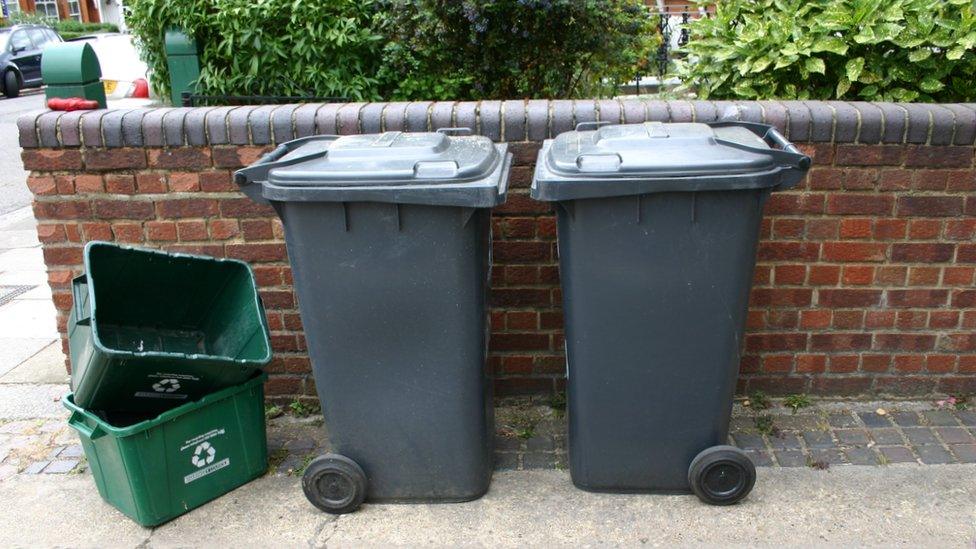Coronavirus: NI councils' job fears after furlough scheme ends
- Published
- comments

Most of Northern Ireland's 11 councils chose to place some staff on furlough at the start of the pandemic
It is not clear whether Northern Ireland councils that furloughed staff during the Covid-19 lockdown can avail of the government's replacement scheme, a committee has heard.
Belfast City Council's chief executive, Suzanne Wylie, said it was the "most critical issue" needing to be resolved.
Most of Northern Ireland's 11 councils chose to place some staff on furlough at the onset of the pandemic.
NI's Department of Finance said it had raised the issue with the Treasury.
The furlough scheme, due to end on 31 October, allowed employers to temporarily lay off staff during the crisis, while the government initially paid 80% of their salaries up to £2,500 a month.
This percentage began to taper out in August, with employers making more salary contributions.
The Jobs Support Scheme will see workers get three-quarters of their normal salaries for six months, but it will only apply to staff who can work at least a third of their usual hours.
Employers will pay staff for the hours they work. For the hours employees cannot work, the government and the employer will each cover one third of the lost pay.
Although councils have continued to operate some essential services during the pandemic, they had to place on hold many of their operations, including leisure and tourism.
'What on earth do we do?'
Belfast City Council has told BBC News NI it placed 308 full-time and part-time staff on furlough at the beginning of the scheme, and that 120 staff remained on furlough.
Speaking to Stormont's Department for Communities committee, Ms Wylie said she was concerned that if those staff could not join the new scheme, it could mean further job losses.
"When furlough ends, we have still got a significant number of staff on furlough that have no job to go back to at this point in time because that particular part of the organisation is not running because it's income-generating and it's not open," she said.
"So what on earth do we do in that particular situation because we don't want to make people redundant?
"It's a really urgent issue and for me, it's the most critical issue for here and now that we must get resolved."
The Department of Finance said if councils had some employees on furlough and could show they had been negatively impacted by Covid-19, they should also be able to make use of the Job Support Scheme.

Belfast City Council is Northern Ireland's biggest, with 60 councillors
But it said that having raised the matter with the Treasury, detailed guidance on the scheme was yet to be published.
BBC News NI asked all 11 councils how many of their staff had been placed on furlough, and how many remained on the scheme.
Ards and North Down Borough Council said it had placed 217 workers on furlough, 111 of whom were still on it, either fully or part-time. It added that at present, 'at risk of compulsory redundancy' pools have not been identified but consultation is continuing with trade unions
Antrim and Newtownabbey Borough Council, which voted to furlough almost 400 workers in May, said with the recovery of services, this had now reduced to 136 staff and 170 casual workers, with some on flexible furlough
Mid and East Antrim Borough Council said 151 of its staff remained on furlough, a drop from 226 at its maximum level. It said staffing remained under review
Derry City and Strabane District Council said 250 staff had been identified as eligible for furlough when the scheme began, of whom about 95 workers were still using the scheme
Fermanagh and Omagh District Council said it had furloughed more than 300 workers during the scheme, 33 of whom remained on the scheme either full-time or flexibly
Causeway Coast and Glens Borough Council said it had placed 106 workers on furlough at the height of the pandemic, 10 of whom were still using the scheme
Mid Ulster District Council said it had furloughed 365 staff, but all had now returned to work and none were currently at risk of redundancy
Armagh City, Banbridge and Craigavon Borough Council also said it had taken 231 staff off the furlough scheme at the end of July, adding that none of its workers were at risk of redundancy
Newry, Mourne and Down Council's most recent claim was for 250 workers and it said when furlough ends it will seek to redeploy employees in cases where services have not fully recovered
Lisburn and Castlereagh Council said just one employee remains on furlough, after having initially placed 98 employees and 82 casual workers on the scheme
All 11 councils said they were still waiting for guidance as to whether they can take part in the incoming Job Support Scheme in November.

At a glance: Sunak's Job Support Scheme

Workers must do at least a third of their normal hours
The government and the employer will pay a third each of the lost hours
It means someone working a third of their hours would receive 77% of their pay
The scheme begins in November and replaces the furlough scheme
It means the government will pay a maximum 22% of someone's wages, down from 80% at the start of the furlough policy

- Published19 May 2020

- Published14 May 2020

- Published5 May 2020

- Published30 April 2019
